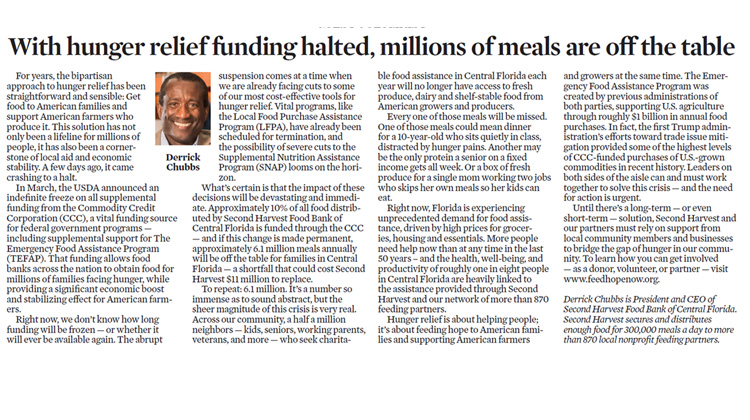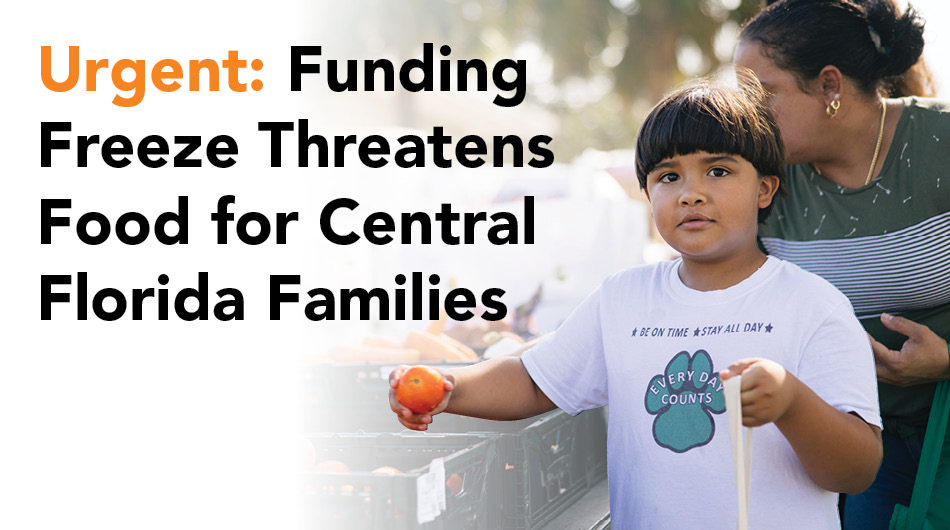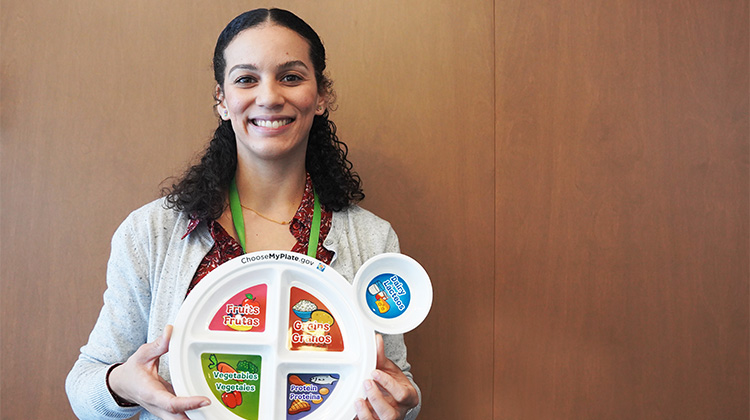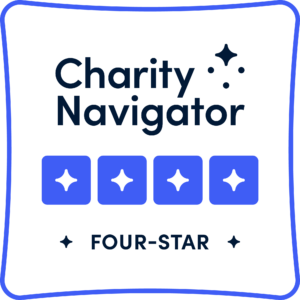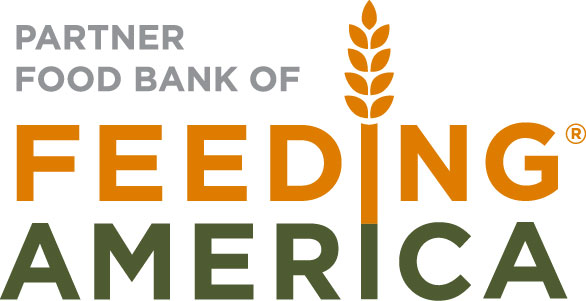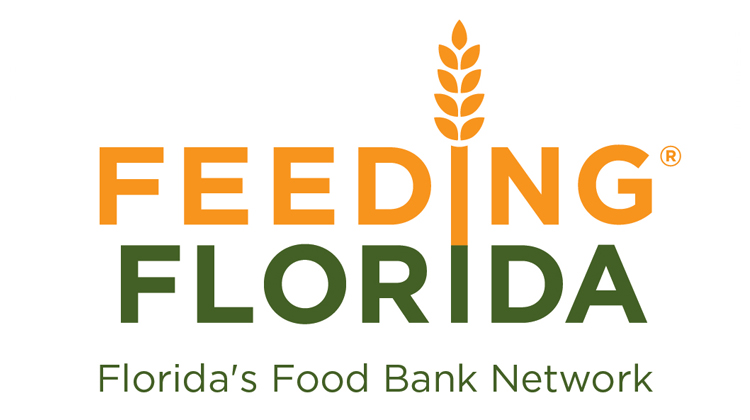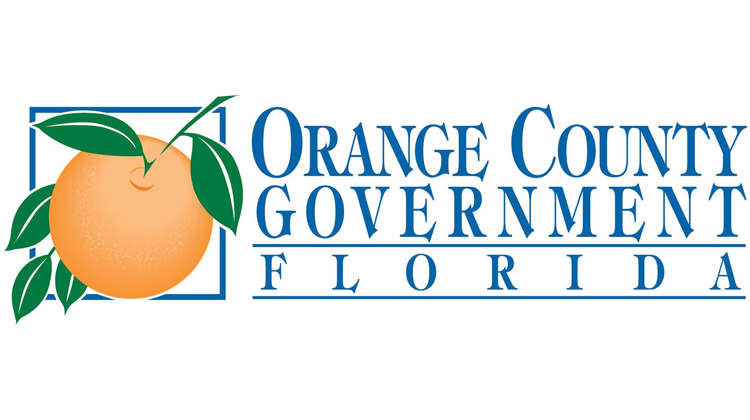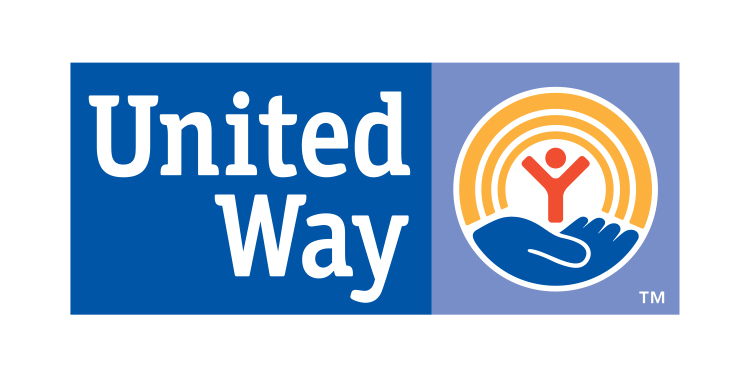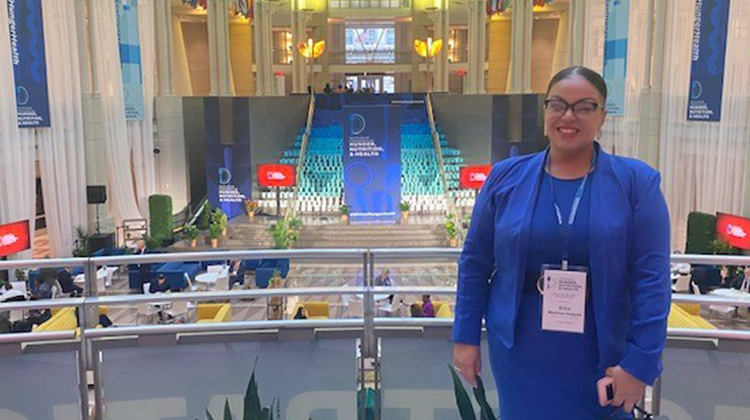
Being selected as one of Feeding America’s Amplified Voices of Neighbors with Experience for the first White House Conference on Hunger, Nutrition, and Health in over 50 years is at the top of my list of Professional Achievements. Despite Hurricane Ian looming back home, I decided I could not miss out on this once-in-a-lifetime opportunity to shed light on my personal experience and other neighbors in my community.
Growing up, I experienced food and housing insecurity at various stages of my childhood in (location) and as a young mother in Central Florida. I relied on federal benefits through the Supplemental Nutrition Assistance Program (SNAP) and Special Supplemental Nutrition for Women, Infants and Children (WIC) to provide meals for my family while working full-time and going to school. For years I worked in human services, helping unsheltered people get back on their feet, and at the same time, I was struggling with some of the same issues as the people I was assisting. Being welcomed to attend this historical conference was not just shedding light on my real-life experience but also representing the people I grew up with and the individuals and families I have spent my career supporting.
I was struggling with some of the same issues as the people I was assisting.”
The most impactful moment was when the President of the United States stood in front of the audience and virtual attendees and acknowledged that our system is flawed and that his administration has a clear strategy to end hunger by 2030.
During the conference, I was able to hear from and have conversations with anti-hunger champions about the Five Pillars in the White House National Strategy on Hunger, Nutrition, and Health.
- Improve Access and Affordability
- Integrate Nutrition and Health
- Empower All Consumers to Make and Have Access to Healthy Choices
- Support Physical Activity for All
- Enhance Nutrition and Food Security Research
The conference’s emphasis on the intersection of health and hunger was exciting. When I was growing up, nutrition was not a topic of conversation in my household; we focused on putting food on the table. Period.
It was inspirational to hear about innovative programs, like Foodprints, that teach children about nutrient-rich foods and allow them to be hands-on in planting, growing, and harvesting them. When kids are excited about the food they are growing to fuel their bodies and subsequently prevent major health issues later in life, solving hunger doesn’t seem like a distant dream anymore.
Erica Astacio is the Benefits Connection Program Manager at Second Harvest Food Bank of Central Florida.


